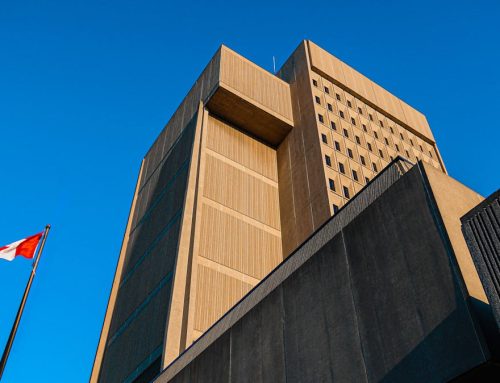Trespassing charges in British Columbia can be a serious matter, carrying penalties under the law. Understanding the consequences of trespassing is essential for anyone facing such charges, as well as for individuals who want to be informed about the legal framework surrounding this issue.
At Jaswal & Krueger, we have gained significant experience in trespassing cases through our years of offering legal services in Surrey, BC. In this article, we will shed light on trespassing charges, including the penalty for trespassing at night in BC.
Understanding Trespassing in British Columbia
Trespassing, in the context of criminal law, refers to the act of entering or remaining on a person’s property without lawful excuse or the owner’s permission. It involves being on someone’s land or property in an unlawful manner. Trespassing can also extend to performing an unlawful activity on the land or refusing to leave when requested to do so by the property owner or their authorized representative.
Trespassing Legislation and its Purpose
The purpose of trespass legislation is to provide property owners with greater control over their private land and premises. It ensures that individuals respect the boundaries of private property and do not engage in activities that infringe upon the rights of property owners. Trespass laws aim to strike a balance between the rights of property owners and the need to protect the privacy and security of individuals and their property.
Trespassing in British Columbia is goverened by both provinical and federal legislation, as is the case in most provinces across Canada. The specific trespass laws in BC outline the rules and regulations governing trespassing and related offences.
Trespass Legislation in BC
To understand trespassing penalties fully, it’s important to comprehend the definitions of relevant terms in the context of trespass legislation:
- Private Property: Property that is owned by an individual or entity and not owned by the government. This includes land or premises.
- Dwelling House Situated: The term “dwelling house situated” is defined by the Criminal Code. This term typically refers to a permanent or temporary residence, such as a house, apartment, or other dwelling where individuals live or intend to live.
Private Property vs. Public Spaces
It’s essential to distinguish between private property and public spaces, as the law treats them differently. While the concept of trespass generally applies to private property, individuals have rights and access to public spaces within the boundaries of the law.
Trespass at Night: A Closer Look
Trespassing at night is covered in Section 117 of the Criminal Code. It states, “Every person who, without lawful excuse, loiters or prowls at night on the property of another person near a dwelling-house situated on that property is guilty of an offence punishable on summary conviction.”
It is important to note that ‘night’ within this legal context refers to the hours between 9:00 PM and 6:00 AM the following morning. Trespassing at night is specifically a criminal offence because the law recognizes that privacy and security concerns are typically heightened during nighttime hours. It’s important to note that this definition remains consistent, despite the substantial seasonal variations in the period of darkness across Canada.
What the Prosecution Needs to Prove

In a criminal case, the burden of proof is on the prosecution. They must prove the accused’s guilt beyond a reasonable doubt, meaning there should be no reasonable doubt in the judge’s or jury’s mind that the accused committed the criminal offence. To secure a conviction for trespassing at night, the prosecution must meet specific legal requirements:
- No Permission: The prosecution must demonstrate that the accused person did not have the owner’s permission to be on the property.
- No Title or Interest: The accused must have no title or interest in the land, reinforcing the lack of legal right to be on the property.
- Occurred at Night: The prosecution must prove the accused trespassed within the hours 9:00 PM and 6:00 AM.
Trespassing at Night Penalty – BC Legal Framework
Trespassing at night in British Columbia carries the potential for various charges, each with its own set of consequences. In BC, trespass is categorized as a summary conviction, subject to a maximum penalty of six months in jail or a fine of up to $2,000.
The Role of Legal Counsel
Facing trespassing charges, especially those involving nighttime trespass, can be a challenging experience, and having experienced legal representation is required to effectively navigate this legal process.
At Jaswal & Krueger, our Vancouver criminal defence lawyers have the knowledge required to protect your rights and help you make informed decisions in the pursuit of the most favourable outcome for your case.
Defending the Accused
Our lawyers carefully analyze the circumstances of your case to provide the best possible defence. This includes:
- Contesting Prosecution’s Legal Requirements for Conviction: The prosecution must prove the accused had no permission to be on the property, had no title or interest at the time of the incident and that the alleged trespassing happened at night. We leverage the information at our disposal to demonstrate these requirements are not fulfilled.
- Diminishing Aggravating Factors: We work to reduce the impact of any aggravating factors that might lead to more severe penalties.
- Highlighting Mitigating Factors: We also construct defence that emphasize mitigating factors, such as an accused person’s remorse, cooperation, clean prior record, and commitment to rehabilitation, to sway the sentencing judge toward leniency.












